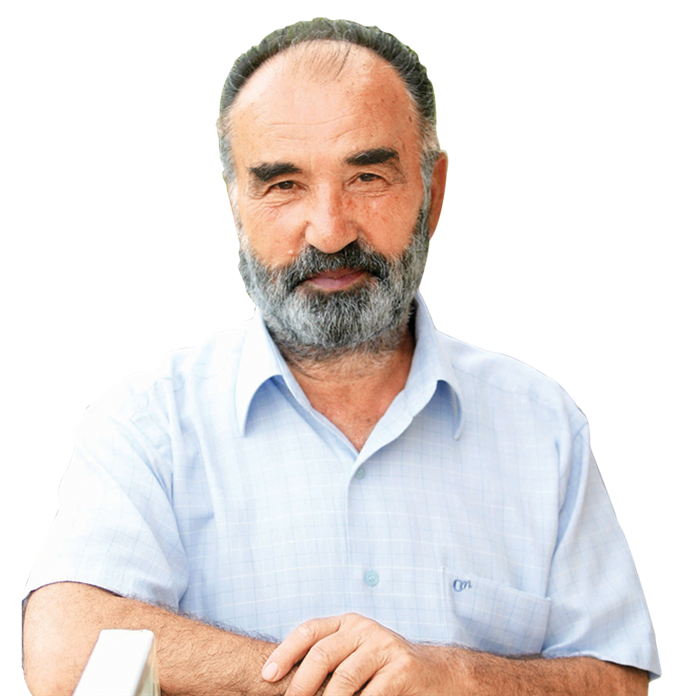This recent news in the media revived my memories but also broke my heart:
In a statement by the 1948 Palestinian Islamic Movement, Israel banned the activities of 17 institutions with ties to the movement. In the statement it was noted that Israel police organized a raid on the institutions affiliated with the movement and sized numerous documents and called in to testify movement leader Sheikh Raed Salah, his assistant Kamal al-Khatib and Suleiman Ahmed, chief of its Al-Quds file. Salah who came to testify to police in Haifa said, “They must have made such a decision to hinder our defense of Masjid Al-Aqsa.” He stated that they reject Israel's illegal decision banning the activities of the 17 movement-affiliated institutions and added: “These lawless actions of Israeli bodies cannot be accepted. The Islamic Movement will remain steadfast through its message and commitment to Jerusalem and Al-Aqsa Mosque, its main founding reason. We will do all we can to remove the injustice against the group which I am proud to be part of, within the framework of the law and other legitimate means.”
On Oct. 15, the Israeli government had issued an international travel ban on 1948 Palestinian Islamic Movement leader Salah and Yousef Al-Awawdeh, the head of the Foreign Affairs Office.
First, let's briefly meet Raed Salah:
Raed Salah, who was born in 1958 in Umm al-Fahm graduated from Umm al-Fahm Secondary College and studied Islamic Law at Al-Khalil University. In 1989, he was elected as mayor of Umm al-Fahm. He was elected mayor again in both the 1993 and 1998 elections. He resigned from Office in 2001 and assumed the leadership of the Palestinian Islamic Movement.
Salah was among the activists in the Gaza flotilla that was raided by the Israeli army in May 2010. Also referred to as “the defender of Jerusalem,” Salah is known as one of the Palestinian leaders to be most opposed to Israel's attempts aimed at Masjid Al-Aqsa and the establishment of new settlement areas in Jerusalem, which the Palestinians regard as “Jewification.”
In the last months of 1995, upon an invite by the faculty of Islamic Sciences opened by Muslims, we had gone to Palestine and Israel with Ali Bardakoğlu, İ. Kafi Dönmez and the late Mehmet Erkal.
One of the important cities within Palestine is the city of Nablus. One other is the city of Umm al-Fahm, where the Faculty of Theology to which we were particularly invited was located. They had previously made a brotherhood pact with our Marmara University. The independent Faculty of Theology in Umm al-Fahm had decided to invite a few people from our Faculty of Theology so that they can meet and discuss what we can do to help them to open out to the world from Israel, where they are backed into a corner.
We landed in Gorion Airport. There is a city there with the same name. From their we moved on to Tel Aviv and arrived to Herzliya, a city that was established in the name of Herzl, who was an important figure in the establishment of Israel. We needed to pray there, which was also one of the centers Salahaddin al-Ayyubi used as a military post. He built a large masjid right on the coast, with a dominating view of the sea. We prayed at that mosque, then we went to Umm al-Fahm where Salah used to be mayor. This city, located in a region called Jalileh, only 70-80 kilometers from Prophet Isa's (Jesus) city Nazereth, has an entirely Muslim population of 40,000-50,000. From there we went the Prophet Isa's city, Nazereth. Then to Nasra, Gaza, Khalil, Nablus and Jerusalem.
We memorized a phrase. Why? Because when passing by a settlement area I ask, “What is this place called?” The esteemed person, scholar and movement leader Sheikh Salah who was with us during most of our visit and who guided us as well as the guides after him all repeated: “Once upon a time this used to be a Muslim city, district, village. They came on such and such date. They burned down this village or district until it was completely gone and they destroyed its graveyard, too. It's former name used to be such and such and they established a new city under such and such name…”
The situation in Umm al-Fahm was exemplary. I had mentioned “Islamic movement,” allow me to explain: “The group formed by individuals who are determined to create an independent Palestine for conscious Muslims to live Islam as individuals and a society” is called the Islamic movement. There are numerous groups within this circle linked to one another with this or that name. But altogether they are referred to as the Islamic movement. Who is against the Islamic Movement? Secular Palestinians.
The Umm al-Fahm municipality is run by Muslims. They built a faculty of theology, they have dormitories, some 400 students – half male, half female. They have good teachers. Their teachers are graduates from Sudan, al-Azhar and Mecca who have later got their master's and doctorates. They have a school for children aged 4 to 7.
Israel did not allow them to open their own private schools. So they opened a kindergarten, a pre-school for children aged 4 to 6-7. They had their own association and through this association they opened a pre-school, dispensary with specialist Muslim doctors at these dispensaries and served the public. Israel had control over the Islamic courts and had the authority to assign imams to mosques. Because it used abused this power, the movement started to build mosques without staff and assigned suitable imams who they paid themselves.
For 20 years, Raed Salah, Kamal al-Khatip and other benevolent men of the movement are fighting against Israel in the most appropriate means possible. Unfortunately we can't do anything for them but pray and give certain supports!




















